Carpal Tunnel
If you experience tingling in your fingers or hands, pain that goes from your wrist to your shoulder or even challenges holding small objects, you could be experiencing Carpal Tunnel Syndrome (CTS). This is an uncomfortable and occasionally debilitating condition that affects nearly five million Americans.
Lifestyle changes can alleviate symptoms, and many treatments can help. Acupuncture and Traditional Chinese Medicine (TCM) are used to treat CTS without harmful medications or side effects.
What is CTS?
The carpal tunnel is a thin passageway in the wrist that shields the median nerve which innervates the hand and the tendons that control the fingers. This nerve is responsible for sensations and muscle movements in the hand. If the carpal tunnel narrows from injury or swelling, the nerve gets compressed. This can be the cause of numbness, pain and serious weakness in the hands.
The main cause of CTS is repetitive flexion and extension of the tendons in the wrists and hands, especially done for long periods which can lead to Repetitive Stress Injury (RSI).
Symptoms usually begin with wrist pain that worsens gradually. Other symptoms may include:
Numbness, tingling or burning sensations in the fingers or hands
Loss of feeling in the fingers
Pain going from the wrist up the arm and to the shoulder or down to the palm or fingers
Weakness in the hands
Difficulty holding objects
How can acupuncture alleviate symptoms?
Treatments for CTS are generally based on how severe the symptoms are. They could include a brace to keep the wrist and hand from moving, using anti-inflammatory drugs or corticosteroids to lessen swelling and in severe cases, surgery. Acupuncture and TCM are used safely in conjunction with Western treatments to soothe CTS symptoms.
Studies suggest that acupuncture reduces swelling of soft tissue while stimulating production of cortisol, a hormone that reduces inflammation. Acupuncture can be effective in treating CTS, as the condition is caused by the swelling of the tissue that leads to inflammation of the carpal tunnel. In addition to improving your CTS, treatment may also improve other symptoms associated with this condition such as neck pain, headaches, and shoulder stiffness. More importantly, acupuncture and TCM can help relieve the emotional stress of living with this painful condition.
Your practitioner will draft a personalized treatment plan created to address your body’s issues. During treatment, fine, sterile needles will be inserted at acupoints along the meridians to strengthen and support your body while eliminating pain.
Your practitioner may also recommend herbs, vitamins, massage and stretching as an additional part of your treatment.
Self-care for a pain-free life
Actively taking part in your treatment is crucial. Consider these self-care techniques:
Take plenty of breaks during the day, especially if you work on a computer or perform tasks repetitively.
Practice yoga to increase your strength and flexibility.
Remember to stretch your hands, arms, and shoulders gently throughout the day.
If you work at a computer, consult an ergonomics specialist to make sure that your computer or workstation is set up in a good manner.
Ask your acupuncturist about vitamins such as B2, B6, and Omega-3 fatty acids which can reduce inflammation and numbness.
Acupuncture and TCM offer a safe, natural and pain-free way to treat Carpal Tunnel Syndrome. Recovery from CTS is possible with proper care. As you continue with treatment, you may find that your overall mental health improves along with your physical symptoms.
References:
Carpal tunnel syndrome. Mayo Clinic. Feb. 21, 2007. Link
Carpal Tunnel Syndrome Fact Sheet. National Institute of Neurological Disorders and Stroke. Nov. 2002. Link
Carpal Tunnel Syndrome. American Physical Therapy Association. Accessed April 20, 2008. Link
Tanaka, Tim H., Ph.D., D.Ac., CST, RMT, BCIAC. TECH PAINS: Carpal Tunnel Syndrome. Eye for the Future Magazine. 1997.
